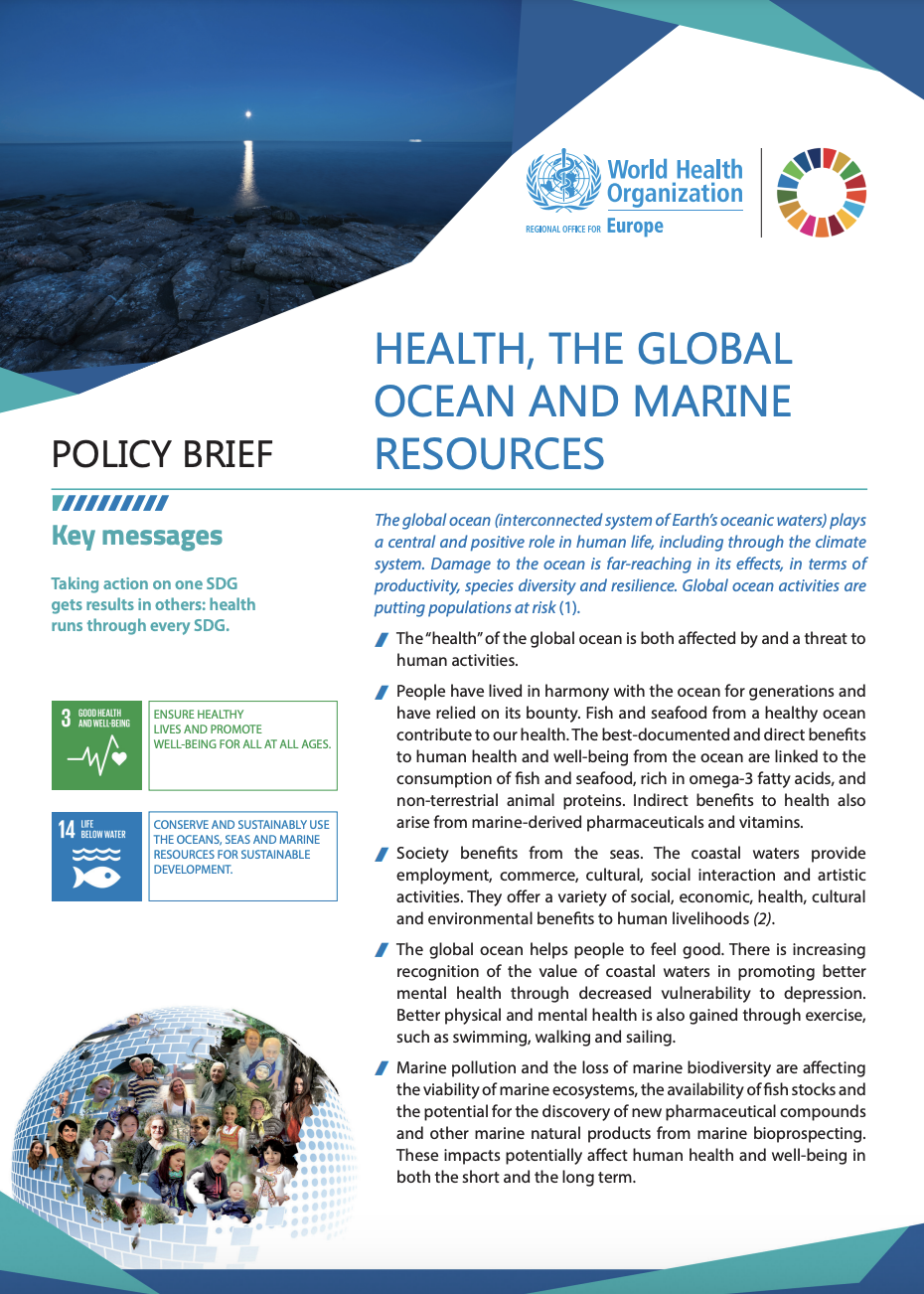WHO Europe, 2020

Policy brief: The 17 Sustainable Development Goals (SDGs) are wide-ranging and interconnected, and health is an intrinsic part of them all. SDG 14 focuses on conserving and sustainably using the global ocean and its resources, while SDG3 calls for healthy lives for all at all ages. How the seas and oceans are managed and used directly affects human health and well-being.The global ocean and seas play a central and positive role in human life, including through the climate system. Damage to the Ocean and seas is far-reaching in its effects, measured in terms of productivity, species diversity and resilience. Global ocean activities are putting populations at risk.The “health” of the ocean is both affected by and threatens human activities.People have lived in harmony with the seas for generations and have relied on their bounty. Fish and seafood from healthy seas and oceans contribute to our health. The best documented and direct benefits to human health and well-being from the Ocean are linked to the consumption of fish and seafood, rich in alpha omega fatty acids and non-terrestrial animal proteins. Indirect benefits to health also arise from marine-derived pharmaceuticals and vitamins.Society benefits from the seas. The coastal seas provide employment, commerce, cultural, social interaction, and artistic activities. The ocean offers a variety of social, economic, health, cultural, and environmental benefits to human livelihoods (2).The sea helps us feel good. There is increasing recognition of the value of coastal seas in promoting better mental health through decreased vulnerability to depression. We also gain better physical and mental health through exercise – such as swimming, walking, and sailing.Marine pollution and the loss of marine biodiversity are affecting the viability of marine ecosystems, the availability of fish stocks, and the potential for the discovery of new pharmaceutical compounds and other marine natural products from marine bioprospecting. These impacts potentially affect human health and well-being in both the short and in the long-term.Marine pollution can poison us. Anthropogenic organic chemicals, fertilizers, and faecal waste from humans and animals, as well as intensified aquaculture, can lead to increasing concentrations of nutrients and microbial and chemical contamination of water and seafood.There is an increase in events linked to climate change such as cyclones, tsunamis and rising sea levels, posing risks to human health, settlements and security. We ignore the health of the seas and ocean at our peril.



